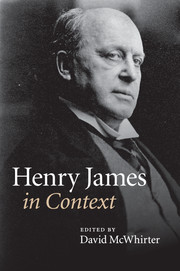Book contents
- Frontmatter
- Contents
- List of Illustrations
- Notes on Contributors
- Preface
- Abbreviations
- Chronology
- Part One Life and career, times and places
- Part Two Historical and cultural contexts
- Chapter 9 Aestheticism and Decadence
- Chapter 10 Authorship
- Chapter 11 Children
- Chapter 12 Consumer culture
- Chapter 13 Cosmopolitanism
- Chapter 14 Courtship, marriage, family
- Chapter 15 Ethics
- Chapter 16 Language
- Chapter 17 Law
- Chapter 18 Manners
- Chapter 19 Media and communication technologies
- Chapter 20 Modernism
- Chapter 21 Money and class
- Chapter 22 Museums and exhibitions
- Chapter 23 Nationalism and imperialism
- Chapter 24 Print culture
- Chapter 25 Psychology
- Chapter 26 Race
- Chapter 27 Realism and naturalism
- Chapter 28 Sexualities and sexology
- Chapter 29 Social sciences and the disciplines
- Chapter 30 Things
- Chapter 31 Time
- Chapter 32 Travel and tourism
- Chapter 33 Urbanity
- Chapter 34 Visual culture
- Chapter 35 Women and men
- Chapter 36 Work
- Part Three Reception
- Further reading
- Index
- References
Chapter 29 - Social sciences and the disciplines
Published online by Cambridge University Press: 05 August 2014
- Frontmatter
- Contents
- List of Illustrations
- Notes on Contributors
- Preface
- Abbreviations
- Chronology
- Part One Life and career, times and places
- Part Two Historical and cultural contexts
- Chapter 9 Aestheticism and Decadence
- Chapter 10 Authorship
- Chapter 11 Children
- Chapter 12 Consumer culture
- Chapter 13 Cosmopolitanism
- Chapter 14 Courtship, marriage, family
- Chapter 15 Ethics
- Chapter 16 Language
- Chapter 17 Law
- Chapter 18 Manners
- Chapter 19 Media and communication technologies
- Chapter 20 Modernism
- Chapter 21 Money and class
- Chapter 22 Museums and exhibitions
- Chapter 23 Nationalism and imperialism
- Chapter 24 Print culture
- Chapter 25 Psychology
- Chapter 26 Race
- Chapter 27 Realism and naturalism
- Chapter 28 Sexualities and sexology
- Chapter 29 Social sciences and the disciplines
- Chapter 30 Things
- Chapter 31 Time
- Chapter 32 Travel and tourism
- Chapter 33 Urbanity
- Chapter 34 Visual culture
- Chapter 35 Women and men
- Chapter 36 Work
- Part Three Reception
- Further reading
- Index
- References
Summary
Henry James’s erratic education, culminating in a year at Harvard Law School (1862), might seem poor preparation for the career of novelist. From the perspective of the American mid-century, colleges and careers, outside the study and practice of the ministry, law and medicine, had not yet become mainstream. Between 1870 and 1900 the middle class began to recognize and promote American universities as institutions well adapted to the pursuit of wealth, social mobility, professionalism, technical and practical knowledge, administrative expertise and organizational skills (reflected in the rules, standards, divisions of the educational facility itself). James’s failure to obtain a degree situates him squarely within the context of what historian Burton Bledstein has described in The Culture of Professionalism as the middle-class tension between the ‘ego-satisfying pretensions’ of higher education and the goal of capitalizing on useful knowledge. In the midst of the Civil War an apparently able-bodied young man must do something, but what? When Henry matriculated at Harvard, the college was comprised of thirty teachers and one thousand students. The ‘liberal arts’ consisted merely of classes in Rhetoric and Oratory taught by Francis Child and Language instruction in French and Spanish taught by James Russell Lowell. By 1872 Henry was dispatching reviews of European pictures and exhibitions to American periodicals without the benefit of coursework in art history. It was not until 1873 that James family friend Charles Eliot Norton began lecturing on the Fine Arts at Harvard. James was an autodidact in the field of art appreciation and in much else; his library, friends and family were his college; his brain was his office.
- Type
- Chapter
- Information
- Henry James in Context , pp. 310 - 320Publisher: Cambridge University PressPrint publication year: 2010



